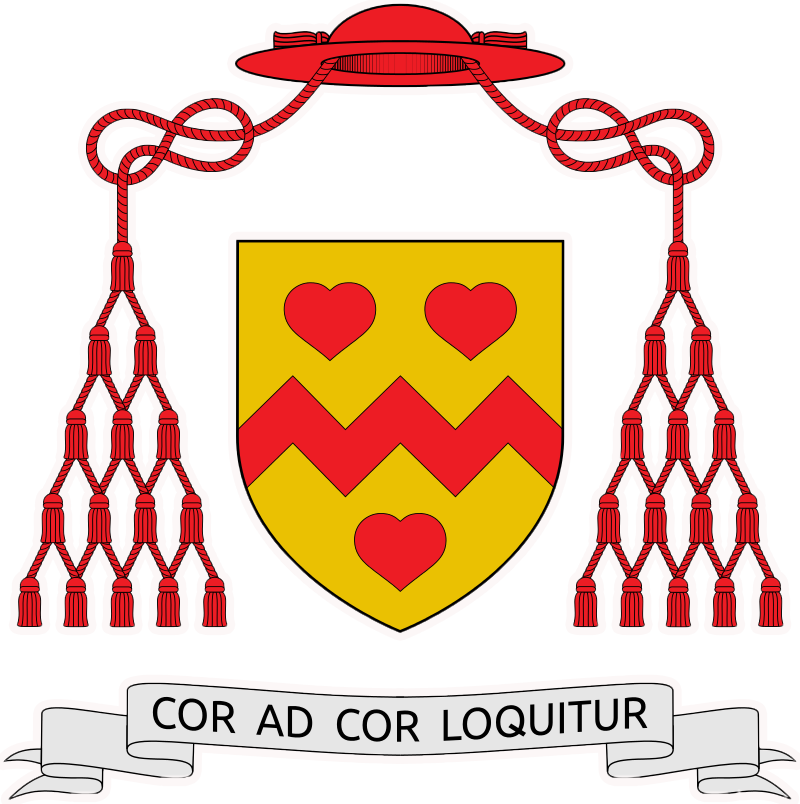Design & Technology
Welcome to Design & Technology
I hope you find this page helpful in understanding the Design and Technology programme at St John Henry Newman School.
If you have any queries regarding the subject, please do not hesitate to get in touch with me.
Rebekah Hurst
Head of Design & Technology/Art

Introduction
The role and impact of technology in both our personal and working lives is ever growing. Understanding how people shape technology and how technology shapes people’s interactions with each other and the natural world is important not only for those who research, develop and implement new technologies but also for all those people and organisations that have to use those technologies in their working and personal lives.
Staff
Mrs R Hurst – HOF 3D specialist KS3, KS4 & Post16 D&T teacher.
Miss S Bradley - Full Time Tech Teacher
Miss L Cook - Full Time Art/KS3 DT Teacher
Mrs R Dow-Richardson - Part Time Art/KS3 DT Teacher
Mrs N Morgan – Senior D&T Technician PT.
What is design and Technology?
Design = to solve problems.
Technology = the tools to help us solve the problem.
Skills Taught
Key Stage 3
Introduction and development of knowledge, understanding and skills required by a Designer.
Pupils at Key Stage 3 are assessed on 5 areas in line with the National Curriculum. These are:
- Designing
- Making
- Technical Knowledge
- Evaluating
- Cooking and nutrition
In Year 7 pupils are introduced to Design and Technology with small design and make activities in a selection of material areas, which include Timbers, Polymers, Card and Paper, Textiles and Food. It also includes Sustainability element. In the following years pupils get the opportunity to carry on and develop their skills in and knowledge of the subject through both practical and theory-based tasks. Before making a choice of which DT strand they may wish to develop for their further studies.
Learning and Assessment will be made throughout the year and focused around the following key areas of Technology:
- Research and Investigation
- Analysis
- Testing and Evaluating
- Manufacture
AQA Assessment
KS4
- GCSE Design and Technology
- Level 1/2 courses in Hospitality and Catering.
- BTEC First Construction and the Built Environment
AQA Assessment
AQA GCSE Design and Technology
AQA GCSE Specification from September 2017
This qualification is assessed in two parts with equal weighting :-
- Controlled Assessment NEA (written folder and practical outcome) 50%
- Final Examination 50%
Yr1 - Design and Technology course builds on the previous progress of the pupils and allows their confidence to grow. Pupils will complete a range of mini NEA design and make tasks in the following materials areas of Timbers, Polymers, Card and Paper, Textiles. This process builds their confidence when using a range of tools and machines. Pupils will also learn how to draw accurately as well as studying about smart materials and issues such as sustainability and the environment and learn how it impacts on design.
Yr2 - Allows pupils to undertake a major design and make task that accounts for 50% of their final grade. The remaining 50% is a written exam that will require pupils to answer questions that test their knowledge, some of which require a piece of extended writing to be produced.
Catering
Eduqas Level 1/2 Hospitality and Catering
The hospitality and catering sector includes all businesses that provide food, beverages, and/or accommodation services. This includes restaurants, hotels, pubs and bars. It also includes airlines, tourist attractions, hospitals and sports venues; businesses where hospitality and catering. According to the British Hospitality Association, hospitality and catering is Britain’s fourth largest industry and accounts for around 10% of the total workforce. Since 2010, over 25% of all new jobs have been within the hospitality and catering sector with the majority of new roles falling within the 18-24 age groups, according to a report by People 1st.
This qualification by Eduqas (WJEC) Level 1/2 Vocational Awards enable Pupils to gain knowledge, understanding and skills relating to this specific vocational sector. In addition to development sector specific knowledge and understanding, these qualifications also support Pupils to develop the essential employability skills that are valued by employers, further and higher education.
Employment in hospitality and catering can range from waiting staff, receptionists and catering assistants to chefs, hotel and bar managers and food technologists working for supermarket chains.
WJEC Level 1/2 Vocational Awards: are designed primarily for 14-16-year-old Pupils in a school environment.
This qualification is assessed in two parts :-
- Controlled Assessment NEA (written folder and practical outcome)
- Final External Examination
Areas covered in this course are:-
- The industry – food and drink
- Job roles, employment opportunities and relevant training
- Health, safety and hygiene
- Food preparation, cooking and presentation
- Nutrition and menu planning
- Costing and portion control
- Specialist equipment
- Communication and record keeping
- Environmental considerations
Level 2 First Award in Construction and the Built Environment
Level 2 First Award in Construction and the Built Environment
BTEC Level 1/Level 2 First Award in Construction and Built Environment provides an opportunity for pupils to study and gain experience of the construction industry. The elements of the course are taken over 3 years.
- Unit 1 External examination
- Unit 2 Exploring mathematical and scientific principles
- Unit 3 Construction and Design – Designing a 4-bedroom house.
- Unit 5 Exploring Carpentry and Joinery – Practical element
Pupils study both technical and practical aspects of the industry with occasional site visits arranged to develop a more work-related context to the course.
The course looks at why the construction industry is an important sector within the UK economy and the key role it plays in all our lives. Pupils will gain an overview of the types of activities undertaken by those working in the construction industry such as job roles and projects. Pupils will also gain knowledge and understanding of health, safety and welfare in the construction industry. The practical elements of the course focus on carpentry and joinery, enabling pupils to construct frames using appropriate hand tools, materials, and personal protective equipment.
Breadth and progression
This qualification has a core of underpinning knowledge, skills and understanding, and a range of options to reflect the breadth of pathways in a sector. This gives Pupils the opportunity to:
gain a broad understanding and knowledge of a vocational sector
investigate areas of specific interest
develop essential skills and attributes prized by employers, further education colleges and higher education institutions.
Course Outline
AQA A’Level Product Design
Subject content
- Technical principles
- Designing and making principles
Assessments
Paper 1
What’s assessed?
Technical principles
How it’s assessed
- Written exam: 2hr30.
- 120 marks
- 30% of the A-level
Paper 2
What’s assessed?
Design and making principles.
How it’s assessed
- Written exam: 1hr30.
- 80 marks
- 20% of the A-level
NEA (Non Exam Assessment – coursework)
What’s assessed?
Practical application of technical principles, design and making principles.
How it’s assessed
- Substantial design and make project.
- 100 marks
- 50% of the A-level
Course Outline
Year 13
PRODUCT DESIGN GCE A2 Level (AQA)
Unit 3 – PROD3
Design and Manufacture 25% of A level 2 hour written paper 84 marks.
Based primarily on Design and Manufacture and consisting of two sections. Candidates answer three questions: one question from three in each section, plus a final question from either section. Includes synoptic assessment.
Unit 4 – PROD4
Design and Making Practice 25% of A level. Coursework approximately 60 hours 85 marks
Written (or electronic) design folder. Manufactured outcome. Candidates submit evidence of a simple, substantial designing and making activity of own choice.
Course Requirements
Pupils need to be self-motivated and enjoy problem solving. Grade C or above in any of the Design and Technology options is desirable, but not essential.
Links
Technology Student
BBC Bitesize
BBC Good Food
British Nutrition Foundation
AQA
BTEC Edexcel
AQA A level Product Design - 7552
AQA GCSE Design and Technology - 8552
https://www.aqa.org.uk/subjects/design-and-technology/gcse/design-and-technology-8552
BTEC First Construction and the built environment
Level 1/2 Hospitality and Catering
https://www.eduqas.co.uk/qualifications/hospitality-and-catering-level-1-2/#tab_overview












